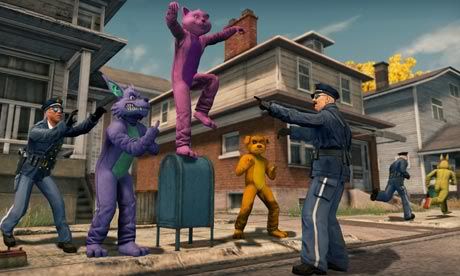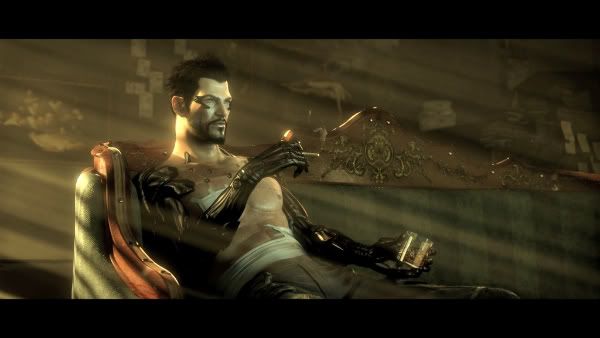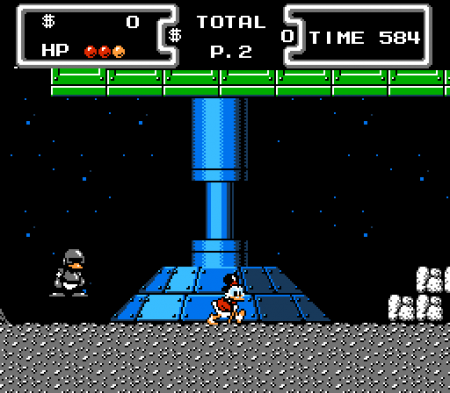This post has not been edited by the GamesBeat staff. Opinions by GamesBeat community writers do not necessarily reflect those of the staff.
I'm upset that I didn't create an example piece for last month's Bitmob Writing Challenge, which was to analyze the themes of a specific game as one would with a book, poem, song, or movie. Fortunately, that didn’t stop the Gaming Criticism challenge from becoming a huge success. Fourteen writers submitted articles that cover generations of our pastime. Read on to learn about the nihilism of Saints Row, racism in The Elder Scrolls 5: Skyrim, Christian iconography in Persona 3 FES, and much more.
 It’s my life: A nihilist reading of Saints Row: The Third
It’s my life: A nihilist reading of Saints Row: The Third
By Tristan Damen
As Grand Theft Auto injected a more human dimension to its crime sprees over the years, its competitor, Saints Row, became more over the top. The result is a concrete wasteland where no one cares about doing the right thing and punishments are a joke. Tristan makes these points while providing quotes about nihilism, a philosophy that life has no objective meaning.
Stuck in Final Fantasy: The plight of Sazh Katzroy
By Matthew Anfuso
Final Fantasy 13 protagonist Lightning regularly indulges in over-the-top acrobatics and one-liners, but her teammate, Sazh, deserves kudos as the ordinary guy who knows how crazy Final Fantasy plots actually are. He’s more than a joke character, however, and Matthew provides us with analysis.
Little Mac vs. Goliath: The dual themes of Punch-Out!!
By Michael Moore
Boxing stories usually focus on combatants whose intelligence and guts make up for physical weaknesses. Little Mac of Punch-Out!! fame can’t take many hits, so he has to get his wins by countering his opponent's best moves. Michael analyzes how the Nintendo Entertainment System original builds up this underdog story in a way that puts later remakes to shame.
Between giants and dragons: Politics in Skyrim
By Steven Sukkaku
The Elder Scrolls 5: Skyrim has loads of sidequests, but the developers filled the main storyline with political intrigue as well. Did you join a group of rebels fighting an evil empire, or are your friends just using draconian-but-necessary acts as an excuse to further their own agenda? Steven has found so much material in Skyrim that he also explored racism and sexism in its world as well.

Power and liberty in Deus Ex: Human Revolution
By Danny Concepcion
According to Danny’s interpretation of Deus Ex: Human Revolution, power gives you both freedom and the ability to control other people's liberties. Protagonist Adam Jensen can grow in strength by upgrading his cybernetic augmentations, but what can he do to remove an illuminati organization's grip on society?
Persona 3 FES and thought-provoking religious symbolism
By Jonathan Oyama
You would expect that a role-playing game where people summon creatures by shooting themselves would have controversial imagery. Jonathan explores “The Answer,” a post-game scenario for Persona 3 FES about the fate of its protagonist. The campaign ends with several well-known Christian symbols, including a crucifix. How do you feel about religious icons in RPGs?
My morality will (not) be InFamous
By Edward Varnell
Morality systems have become commonplace in games, and Edward hoped to see good use of it in InFamous. Unfortunately, it only exposed a weakness in the mechanic: Because the right thing is not always black-and-white and protagonist Cole rarely shows guilt for his actions, players have no reason to sympathize with him.
Super Press Space to Win: A postmodern deconstruction of gaming
By Stephen Crane
Are developers dumbing down games to the point that they play themselves? That’s the idea behind Super Press Space to Win, a Flash game where the spacebar is all you need to complete it. Stephen analyzes the game as a deconstruction that exposes the clichés and handholding that run rampant in today's titles.

Majora’s Mask: Personalities at the end of the world
By Matt Perez
If you’re sick of the default narrative of most Legend of Zelda games, Majora’s Mask may be for you. Here, the story focuses less on Link’s journey and more on the moon that’s set to crash into the land. As Matt states, this classic is still ahead of its time when it comes to creating a sense of impending doom among the citizens of Termina.
Norman Jayden’s true addiction
By Justin Davis
Heavy Rain is the type of game that borders on being an interactive movie and wants its players to analyze its themes. Norman Jayden is an FBI profiler who needs a special drug to deal with his shakes and pains. Justin writes that while the game suggests that the drug is the cause of his medical problems, the real culprit is something he needs to use for his job.
Is Life worth your time? Read the review
By T. Leupold
While we know plenty of people who reached success despite growing up in horrible conditions, they tend to be exceptions to the rule. Life is a massively multiplayer game where you could grow up in a mansion or a slum based on chance, and death is permanent. It certainly is ambitious, but is it fun? T. Leupold has the answer.
 DuckTales’ Scrooge McDuck is the worst person ever
DuckTales’ Scrooge McDuck is the worst person ever
By Joshua Dennison
As children, we saw this Duck Tales geriatric as a grouchy billionaire who solved mysteries and rewrote history, but Joshua sees things differently. The game adaptation shows the mind of a cutthroat who uses friends and disregards property rights. If only the game ended with Scrooge gazing upon his giant coin vault and begging, “why won’t you make me happy?”
Prophets and Plasma Cutters: Religious commentary in Dead Space
By Grayson Hamilton
As Persona 3 references Christian lore, Dead Space 2’s plot tackles an in-game religion where those in charge use their followers to achieve their own ends. Grayson sees "Unitology" as a stand-in for Scientology. He believes, however, that the story is not attacking the faith but merely pointing out the potential for abuse in any belief system.
L.A. Noire: Real noir or just shades of gray?
By Chad Habel
L.A. Noire was one of last year’s most-talked about games and is one of the few that non-gaming-focused outlets took seriously as an artistic piece. But while “noire” is in the title, does this detective story really capture the essence of the films that inspired it? Chad investigates.
Thank you very much to everyone who participated. Be sure to check out our Coins and Sense challenge for February. Since you guys enjoyed writing about games on a critical level, you’re sure to like examining the currencies and experience systems of them as well.
